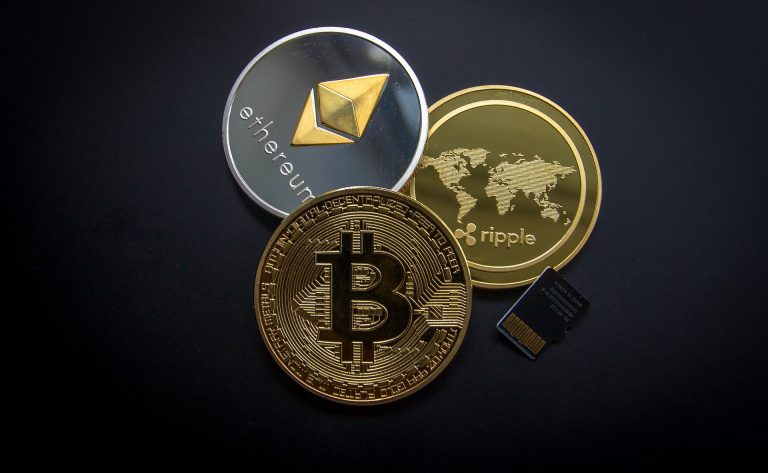Britain’s Financial Conduct Authority (FCA), the financial regulatory body of the UK, has banned cryptocurrency exchange Binance from operating in the country’s regulated markets. Founded in 2017, Binance is the largest cryptocurrency exchange in the world by trading volume. It allows users to trade in popular digital currencies like Bitcoin, Ethereum, and a host of lesser-known ones as well.
“Due to the imposition of requirements by the FCA, Binance Markets Limited is not currently permitted to undertake any regulated activities without the prior written consent of the FCA… No other entity in the Binance Group holds any form of UK authorization, registration or license to conduct regulated activity in the UK,” the FCA said in a press release.
The regulatory body has asked Binance to publish a notice to this effect on its website and other communication channels by close of business on June 30, 2021. All financial promotions and advertising campaigns are to be ended by this date. In addition, the firm has been asked to preserve records of UK consumers and retain them in the country so that they can be handed over to the FCA upon request.
Binance had planned to launch a digital asset marketplace in the UK but later withdrew its application after failing to meet the anti-money laundering requirements set by the FCA. While the regulatory body’s new rule effectively bans Binance from operating in the regulated services market, the company can still continue to offer cryptocurrency trading services to British citizens.
Laith Khalaf, financial analyst at AJ Bell, told CNBC that providing access to cryptocurrencies itself is not a regulated activity. However, offering derivatives is, which is what the FCA aimed to clamp down on. The new regulation isn’t going to “knock the crypto craze on the head,” he said.
Success
You are now signed up for our newsletter
Success
Check your email to complete sign up
“It is part of a growing trend of regulatory intervention in crypto markets… The idea that policy makers are simply going to allow a decentralized shadow payments system to emerge without any regulatory oversight is fantastical, and if the use of crypto assets becomes more widespread, we can expect beefed-up regulation to follow suit,” Khalaf said.
In a tweet, the company confirmed that the “FCA UK notice has no direct impact on the services provided on Binance.com.”
China link, US operations
Binance was founded in July 2017 in Shanghai by Chinese Canadian entrepreneur Changpeng Zha. Two months into its business, and a week before the CCP began cracking down on the country’s cryptocurrency industry, Binance shut down and shifted operations overseas to Japan. It is currently registered in the Cayman Islands, Seychelles, with an office in Singapore.
In 2019, the company partnered with BAM Trade Services to establish Binance.US. BAM has the approval to trade in cryptocurrencies in the United States and is registered with the U.S. Financial Crimes Enforcement Network (FinCEN) as a Money Service Business (MSB). As of April, Binance.US has achieved compliance in 37 states and has obtained a Money Transmitter Licensing, according to The Epoch Times.
The cryptocurrency market in the U.S. is regulated by four entities: FinCEN, Securities and Exchange Commission (SEC), Office of the Comptroller of the Currency (OCC), and the Commodity Futures Trading Commission (CFTC). Binance’s U.S. operations are regulated by CFTC and FinCEN. The company has not applied for a cryptocurrency derivatives license to CFTC. However, the firm does serve American users. In fact, almost 40 percent of Binance’s trading volume is said to come from the U.S. market.
Binance had publicly announced that it would stop servicing U.S. residents from Sept. 2019 but continued to provide access to Americans until Oct. 2020. A Forbes expose stated that Binance had “conceived of an elaborate corporate structure designed to intentionally deceive regulators and surreptitiously profit from crypto investors in the United States.” It was only a month later in November that Binance officially notified U.S. resident users to withdraw their money.
In March 2021, it came to light that the CFTC was investigating the firm’s activities. According to a Bloomberg report, U.S. officials have expressed concerns that cryptocurrencies were being used in illegal transactions and that Americans who benefited from the market were evading taxes. The Department of Justice and the Internal Revenue Service were also said to be investigating the company.
Founder Zhao said that Binance strictly adheres to the country’s regulations. However, he said that even though it was blocking U.S. access to its website, American users were finding ways to bypass it and trade on their platform. A user only has to click “I’m not [American]” to set up an account and trade on Binance.
In its 2020 Crypto Crime Report, blockchain analysis company Chainalysis said that large amounts were being moved by criminals through Binance.
“Over the course of the entire year, we traced $2.8 billion in Bitcoin that moved from criminal entities to exchanges. Just over 50% went to the top two: Binance and Huobi… Binance and Huobi lead all exchanges in illicit Bitcoin received by a significant margin,” an excerpt of the report said.


















